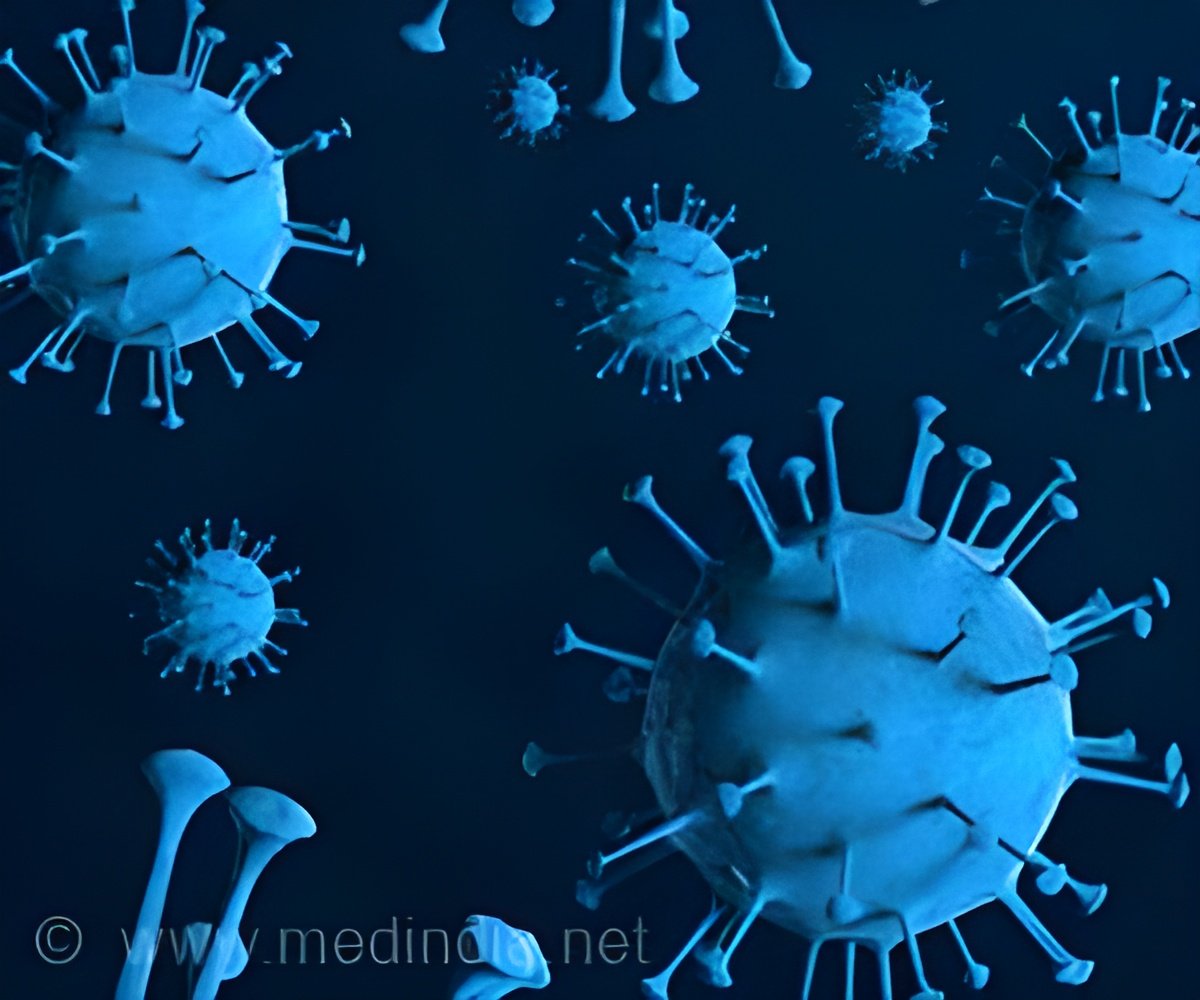Blood gene profile that predicts idiopathic pulmonary fibrosis mortality was repurposed to assess the likelihood of COVID-19 survival.

‘COVID-19 and idiopathic pulmonary fibrosis (IPF) may share common innate and adaptive immune responses that trigger lung scarring.’
Read More..




Idiopathic pulmonary fibrosis (IPF) affects the lung interstitium or the space between the lung sacs and the bloodstream, leading to severe lung scarring. Severe COVID-19 can also damage the lung interstitium leading to severe lung scarring.Read More..
"Our study identified at the molecular level, a gene risk profile that predicts worse COVID-19 outcomes before the patient becomes severely ill," said principal investigator Jose Herazo-Maya, MD, an associate professor and associate chief of pulmonary, critical care and sleep medicine at the USF Health Morsani College of Medicine.
"That means every patient with COVID-19 could potentially get a blood test that could tell us if they are at high or low risk of dying. And if we know in advance who will likely end up in the ICU and who will likely do well recovering at home with appropriate monitoring, we can tailor our interventions to individual patients based on their level of risk."
This study appeared online in EBioMedicine. It builds upon previous genomic research by Dr. Herazo-Maya and colleagues at Yale School of Medicine.
’Can we repurpose the gene signature known to predict mortality in a fibrotic lung disease to predict mortality in those infected with a new coronavirus that can cause lung fibrosis as well?" said the EBioMedicine paper lead author Brenda Juan-Guardela, MD, assistant professor of medicine at the USF Health Morsani College of Medicine and medical director of Respiratory Care Services at Tampa General Hospital (TGH).
Advertisement
Gene expression patterns of 50 genes were analyzed in three COVID-19 cohorts and two IPF cohorts. The researchers used a molecular scoring system to distinguish between high versus low-risk gene profiles in all five cohorts.
Advertisement
Single-cell, gene expression analyses was done and it was found that monocytes, neutrophils, and dendritic cells as the primary source of gene expression changes in the high-risk, COVID-19 gene profile. This finding suggests COVID-19 and IPF may share common innate and adaptive immune responses that trigger lung scarring.
The 50-gene risk profile in COVID-19 can also predicts mortality in IPF at the exact same threshold.
At TGH, Dr. Herazo-Maya treats previously hospitalized COVID-19 patients who come to the Center for Advanced Lung Disease with severe lung fibrosis; some are being evaluated for lung transplantation. "Even though coronavirus cases are dropping, that doesn’t mean all the patients will recover without complications," he said.
"We’re starting to see the damaging, long-term effects in the lungs of some COVID-19 survivors."
Researchers may soon apply the gene risk profiles to help advance the care of both COVID-19 and IPF patients, Dr. Herazo-Maya said. His laboratory is currently developing a blood test, based on these genes, that can be easily applied in clinical practice to predict poor disease outcomes.
Immunosuppressant drugs have been discontinued for IPF treatment because they increase mortality when given at high doses and in combination over long periods, Dr. Herazo-Maya said.
"But perhaps we could investigate the use of dexamethasone or a similar steroid treatment for a short period of time in a subgroup of IPF patients with a 50-gene high risk profile, using the principle of precision or personalized medicine."
The 50-gene high risk profile may also support the rationale to investigate the use of targeted IPF antifibrotic medications, which slow the rate of lung scarring, to prevent short and long-term sequelae of COVID-19, he added.
Source-Medindia












